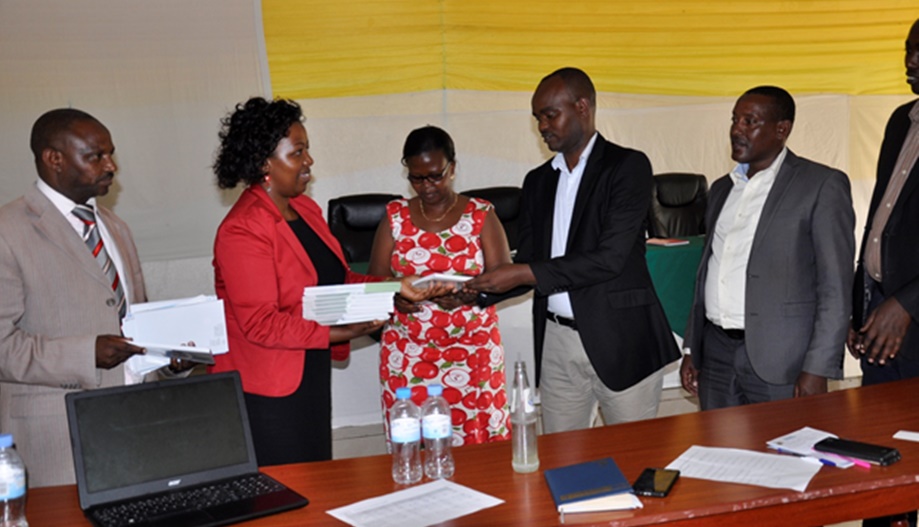Karongi, 30th May, 2017:theMinistry of Infrastructure began the dissemination campaign of Water and Sanitation Policies and related implementation strategies at provincial level. In the Western Province, the official launch which took place in Karongi District, brought together different water and sanitation partners that have a direct role to play in water supply and sanitation sector development. They include local authorities and technicians at provincial and district levels, Water, Sanitation and Hygiene Officers, Private Operators for water supply and sanitation services, main water and sanitation sector NGOs and community based organizations and WASAC Representative.
The overall objective of the dissemination is to ensure awareness and ownership of the National Water supply Policy and National Sanitation Policy and related frameworks, strategic actions for implementation to all Water and Sanitation actors especially local leaders, stakeholders, technical staff and communities, to make sure that their implementation strategies are captured in District Development Strategies and daily plans for Policies implementation.
According to Water and Sanitation Division Manager, Eng. Marcelline Kayitesi, the dissemination program was initiated to explain more about water supply and sanitation policies guiding principles and engage discussion over policy pillars and related policy statements and implementation actions.
In her presentation, she noted that the National Water Supply and Sanitation policies have been developed in a series of cross-sectorial stakeholder consultations. Consultation meetings took place at different political and technical collaboration levels, including provinces and districts. A number of objectives were formulated to be able to address current challenges.
As discussed during the workshop, the effective implementation of National Water Supply Policy will contribute in raising rural water supply access to 100 per cent by 2020 by fast-tracking implementation of a strategic investment programme. This policy will ensure safe, reliable and affordable urban water supply services for all while striving for financial sustainability.
In the same vein, the National Sanitation Policy was also developed to raise and sustain household sanitation coverage to 100 per cent by 2020 while contributing to the development of safe, well-regulated and affordable off-site sanitation services for densely populated areas.
Participants were informed on the implementation mechanisms which will involve all ministries and public institutions, private sector; local communities and development partners that are responsible for water and sanitation, with the Ministry of Infrastructure taking the lead in coordination. It was clarified that at the district level, the One Stop Centers are implementers of the policy, under the overall governance and management of the District authorities, responsible for all areas which concern citizens’ lives.
From the presentation highlights, an open discussion was held out of which it emerged the willingness to own the implementation of these policies, where many of technical actions will be implemented, monitored and evaluated on regular basis.
It is noted that Water and Sanitation policies and their implementation Strategies were officially launched on 22nd March 2017 as the dissemination campaign at provincial level and City of Kigali will be followed by District level meetings and other media awareness programs.

 ENGL
ENGL KINY
KINY